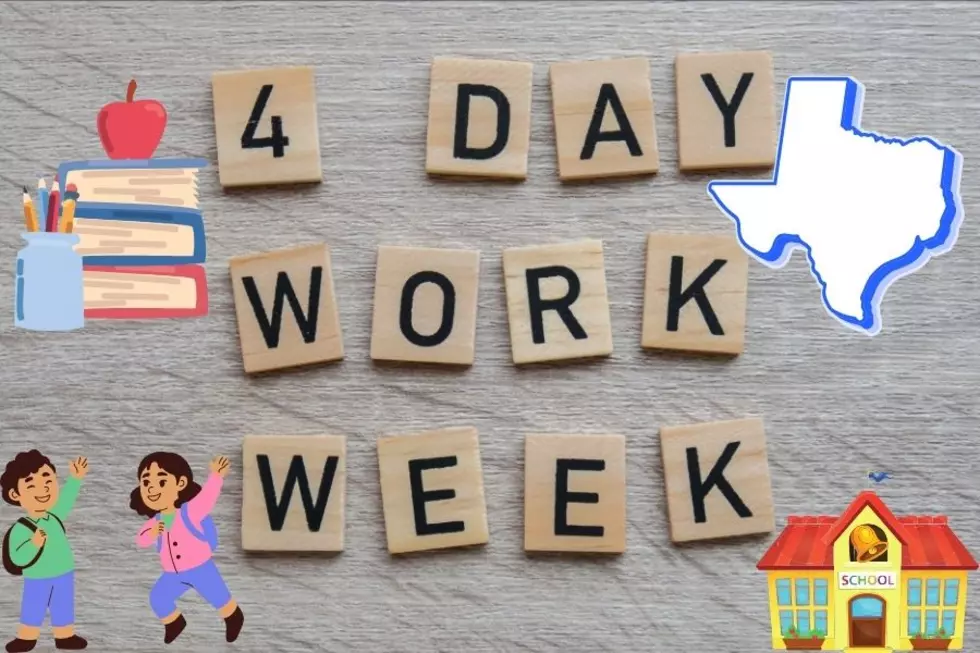
Chad’s Morning Brief: Ted Cruz Testing the Waters for 2016? Education Funding Not a Big Deal for Most Texans, & More
Here is your Morning Brief for the morning of April 3, 2013. Give me your feedback below and tune in to The Chad Hasty Show for these and many more topics from 8:30 to 11am.
1. Cruz to South Carolina (link)
Is Senator Ted Cruz testing the waters for a possible 2016 run? CNN thinks so as Senator Cruz will travel to South Carolina in May.
He’s been in Washington only three months, but U.S. Sen. Ted Cruz of Texas is already planning a pilgrimage to a critical presidential primary state.
The outspoken Cruz, a conservative attorney who has sprinted headlong into the Washington media spotlight since his election last November, will be the keynote speaker at the South Carolina Republican Party's Silver Elephant Dinner, CNN has learned. Cruz spokesperson Catherine Frazier also confirmed his attendance at the dinner, slated for May 3 in Columbia.
Cruz has been an increasingly in-demand speaker among grassroots Republicans thanks to his blunt conservatism and willingness to ruffle feathers on Capitol Hill. He has delivered speeches at glitzy dinners in Washington and even at a local GOP event in Ohio.But his trip to South Carolina will be his first public foray into an early primary or caucus state, a signal that he is dead serious about being a part of the 2016 presidential conversation despite his limited time on the national stage.
“His popularity among the activists in South Carolina is already so huge he was a natural choice for the Silver Elephant,” a Republican involved in the planning of the event told CNN. “Our activists have been begging us to bring him. He is a rising star. He’s a Jim DeMint style of Republican.”
Indeed, this year’s Silver Elephant Banquet - a fundraiser for the state GOP - will be a tribute to DeMint, the former South Carolina senator who recently left office to head the conservative Heritage Foundation. DeMint endorsed Cruz in his successful 2012 GOP primary fight against Texas Lt. Gov. David Dewhurst.
Sorry not buying it right now. Just about any trip a high-profile Republican takes right now will be looked at as having something to do with 2016. If this was about Marco Rubio, then sure it might be about 2016. With Cruz, it's way too early to think about him running for President.
Speaking of Senator Cruz, he will appear on today's edition of The Chad Hasty Show at 9:05am.
2. Education in Texas (link)
Schools Districts around the state have spend the last two years complaining about funding and that education is suffering due to the lack of funding. The complaining has apparently fallen on deaf ears. According to the Texas Tribune, most Texans aren't buying into what the schools are saying.
Education advocates expressed reserved optimism last week when the House and Senate released their respective budgets. While neither restored last session’s now-infamous $5.4 billion in cuts to education, the House proposal would increase education spending by $2.7 billion, $1 billion more than the Senate version. Despite the very public proclamations of educational end times since the cuts were made, the public appears to have taken little notice, providing at least some of the bulwark — along with the tried and true low spending, low service orthodoxy — for the Legislature’s resistance to restoring the cuts in whole.
Education has remained static in voters’ assessments of the most important problems, remaining the choice of between 8 and 12 percent of Texans in each of the last seven polls that we’ve conducted since May 2011. As with many issues, party identification frames voters’ perceptions of the importance of education. While Democrats appear somewhat more concerned about education than Republicans, fewer than one in five Democrats chose it as the state’s most important problem in those surveys, while the percentage of Republicans choosing education has consistently remained below 10 percent.
Yet the results don’t overwhelmingly suggest widespread perceptions of a crisis in public school classrooms. In October 2012, 45 percent of respondents said that the education system was “about the same,” “somewhat better” or “a lot better” compared to a year ago, while 43 percent said it was “somewhat worse” or “a lot worse”. When we asked again in our most recent survey, 47 percent said it was the same or better, 38 percent it was worse — a notable decline in the negative responses and, while not a glowing endorsement, not exactly a sign that end times have arrived, either.
When we look only at parents with children in school, 58 percent said public education was the same or better and 36 percent said it was worse in October 2012, while in February, 57 percent said it was better and 36 percent said it was worse. Contrary to the expectations of critics of the 2011 funding cuts, parents with kids in the public schools appear to be somewhat more positive about the system compared with the public at large.
These figures should also tell lawmakers to stop being afraid of the school districts. Yes, even our lawmakers in West Texas who are against school vouchers.
3. Illegal Immigrant (link)
Bowing to the world of political correctness, the AP will no longer use the term 'illegal immigrant' or the word 'illegal' to describe a person. According to Politico, the AP no longer wants reporters to use the term to describe a person, only the action.
The AP Stylebook has been updated to state that it no longer sanctions the use of “illegal” or “illegal immigrant" for a person, senior vice president and executive editor Kathleen Carroll wrote in a blog post. The Stylebook now directs that “illegal” should only be used to describe an action, “such as living in or immigrating to a country illegally,” Carroll noted.
The AP aims to label “behavior” instead of “people,” Carroll wrote, pointing out that “the new section on mental health issues argues for using credibly sourced diagnoses instead of labels. Saying someone was ‘diagnosed with schizophrenia’ instead of schizophrenic, for example.” The AP, she said, is working on “ridding the Stylebook of labels.”
“And that discussion about labeling people, instead of behavior, led us back to ‘illegal immigrant’ again,” she said. “We concluded that to be consistent, we needed to change our guidance. So we have.”
Carroll added that the AP will continue to examine the best way to describe “someone in a country without permission.” The AP has decided that using “illegal” only to refer to an action, not a person, is the best way to go “for now.”
“We also believe more evolution is likely down the road,” she added.
The new AP Stylebook entry for “illegal immigration” states:
illegal immigration Entering or residing in a country in violation of civil or criminal law. Except in direct quotes essential to the story, use illegal only to refer to an action, not a person: illegal immigration, but not illegal immigrant. Acceptable variations include living in or entering a country illegally or without legal permission.
Except in direct quotations, do not use the terms illegal alien, an illegal, illegals or undocumented.
Do not describe people as violating immigration laws without attribution.
Specify wherever possible how someone entered the country illegally and from where. Crossed the border? Overstayed a visa? What nationality?
People who were brought into the country as children should not be described as having immigrated illegally. For people granted a temporary right to remain in the U.S. under the Deferred Action for Childhood Arrivals program, use temporary resident status, with details on the program lower in the story.
The left loves to say people can't be illegal. The AP agrees which really shouldn't shock anyone.
Other Top Stories:
These and many more topics coming up on today’s edition of The Chad Hasty Show. Tune in mornings 8:30-11am on News/Talk 790 KFYO, streaming online at kfyo.com, and now on your iPhone and Android device with the radioPup App. All guest interviews can be heard online in our podcast section after the show at kfyo.com.
More From News/Talk 95.1 & 790 KFYO









